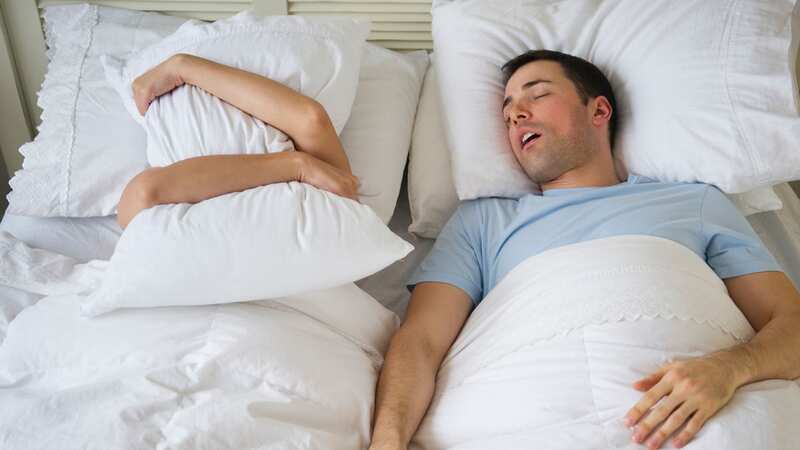Reasons people snore more during winter - and 50-second trick to prevent it

It's no fun sleeping next to a snorer, and it can actually get worse in the winter.
Experts say this is because the air is "generally drier" during the colder months which can cause congestion in the nose and throat. People also tend to spend more time indoors in winter, often leading to "less ventilation and more dust in the air". Again, this can cause congestion and promote snoring.
Even wearing heavier pyjamas to keep warm as temperatures plunge outside could put pressure on the chest and throat, worsening those late-night groans. But, if you're tired of having to sleep on the sofa after waking up the entire house - there are some easy hacks to prevent snoring. One particular exercise only takes 30 seconds and can lead to an impressive 59 per cent reduction.
Martin Seeley, sleep expert and CEO of MattressNextDay, recommends snorers start adding a 30-second tongue exercise to their night time routine, as strengthening the muscles could help reduce the condition. Simply close your mouth and move your tongue in one direction 10 times, then in another direction 10 times, and then in a third direction for the final round. According to the expert, snorers will witness results after just three nights.
Another tongue exercise, recommended by Sleep Foundation, includes placing the tip of your tongue against the back of your top front teeth. Then, slowly slide your tongue backward with the tip moving along the roof of your mouth. This should be repeated five-10 times.
 Teachers, civil servants and train drivers walk out in biggest strike in decade
Teachers, civil servants and train drivers walk out in biggest strike in decade
Want the latest health news and fitness tips sent straight to your inbox? Sign up to our Health Newsletter
Whilst snoring may only be seen as an annoying habit, it may be a sign of a more serious health issue. The NHS actually lists loud snoring as a common symptom of sleep apnoea - a condition that causes your breathing to stop and start during your sleep.
If left untreated, sleep apnoea can can get much more serious and will start to effect other health markers like your . Those with the condition should see their GP as you may need to sleep with a CPAP machine.
Other treatments include using a gum-shield type device that keeps your airways open, as well as surgery. "It can be hard to tell if you have sleep apnoea," the NHS added. "It may help to ask someone to stay with you while you sleep so they can check for the symptoms." Other signs include feeling very tired during the day, making gasping or 'snorting' noises while you sleep, and waking up a lot throughout the night.
Read more similar news:
Comments:
comments powered by Disqus

































